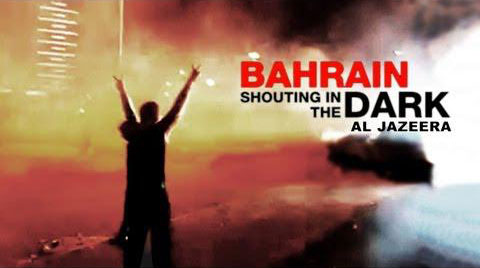Did you know that Truthout is a nonprofit and independently funded by readers like you? If you value what we do, please support our work with a donation.
 (Image: Al Jazeera English)During the democratic uprisings that began in the Arab world in 2011, the entire world has focused on Tunisia, Egypt, Yemen, and now Syria. On February 16, Bahrainis participated in what the Qatar-based television station Al Jazeera has called a “secret revolution,” one that was “abandoned by Arabs, forsaken by West and forgotten by the world.” With no international reporters in Bahrain to capture the uprising, Al Jazeera documented, in trembling closeness, the courage demonstrated by the Bahraini protesters, and then the horrors and bloodshed that ensued once the ruler’s forces commenced their attack.
(Image: Al Jazeera English)During the democratic uprisings that began in the Arab world in 2011, the entire world has focused on Tunisia, Egypt, Yemen, and now Syria. On February 16, Bahrainis participated in what the Qatar-based television station Al Jazeera has called a “secret revolution,” one that was “abandoned by Arabs, forsaken by West and forgotten by the world.” With no international reporters in Bahrain to capture the uprising, Al Jazeera documented, in trembling closeness, the courage demonstrated by the Bahraini protesters, and then the horrors and bloodshed that ensued once the ruler’s forces commenced their attack.
This timely and inspiring footage, which ultimately tells a disheartening story, can now be seen in the new documentary Bahrain: Shouting in the Dark. The film documents how Bahrainis maintained their dignity through years of absolutism and then, inspired by events taking place elsewhere in the Arab world, gathered around the Pearl Roundabout in the capital city of Manama to demand freedom from a corrupt regime. It started with the familiar chant “the people want the fall of the regime” but ended when the regime crushed the protests at the Pearl Roundabout.
Bahrain is a small island situated near the western shores of the Persian Gulf. Since the 18th century, the Khalifa family has ruled the country. The current head of the family is Hamad bin Isa Al Khalifa, who became the emir of Bahrain in 1999 and proclaimed himself King of Bahrain in 2002. The documentary reveals that the ruling family acquired $40 billion in public land for themselves—approximately 10 percent of the country. The Al Khalifa family professes Sunni Islam and rules a majority Shia population. The Bahraini uprising has often been portrayed as a sectarian struggle between Sunni and Shia. However, Shouting in the Dark provides an alternative narrative that demonstrates the unity among Bahrain’s citizens and the political, rather than religious, nature of their demands. The demonstrators simply wanted their “minimum basic rights” as human beings.
Shouting in the Dark narrates how Western rulers chose to ignore Bahrain because the Bahraini ruling family is an important strategic ally in the Middle East. The U.S. Navy’s Fifth Fleet is based in Bahrain, and the island state is located near Saudi Arabia’s oil fields. Furthermore, the Gulf Cooperation Council—the political and economic union of the Arab states bordering the Persian Gulf—pledged to support the Khalifa ruling family. Saudi Arabia sent tanks to Bahrain to surround the Pearl Roundabout and restore order in the country.
In the aftermath of the protests, the Bahraini government severely cracked down on the activists. State television launched a campaign that divided the people and ignited sectarian tension. The government accused the protestors of being traitors and blamed Iran for the violence that ensued in the roundabout. The Bahraini authorities arrested prominent Bahrainis like A’ala Hubail and his brother Mohamed Hubail, both members of the national soccer team, in connection with their participation in the 2011 protests, humiliated them on television, and then imprisoned and tortured them. Ayat al Qurmezi, a veiled young female, was arrested for reciting a poem that criticized the royal family. Human rights lawyer Mohammed Al Tajer and opposition politician Matar Matar were also arrested and are currently on trial. Security forces gunned down several peaceful Bahraini protestors in the streets and in their homes. Police detained many dissidents at police checkpoints, then later dumped their bodies on the road, marked with unmistakable evidence of torture.
Shouting in the Dark is a painful, mesmerizing, and tragic documentary. Finally, with all this Al Jazeera footage in one place, it is possible to view the one Arab uprising that has largely been hidden from view.
Trump is silencing political dissent. We appeal for your support.
Progressive nonprofits are the latest target caught in Trump’s crosshairs. With the aim of eliminating political opposition, Trump and his sycophants are working to curb government funding, constrain private foundations, and even cut tax-exempt status from organizations he dislikes.
We’re concerned, because Truthout is not immune to such bad-faith attacks.
We can only resist Trump’s attacks by cultivating a strong base of support. The right-wing mediasphere is funded comfortably by billionaire owners and venture capitalist philanthropists. At Truthout, we have you.
Our fundraising campaign is over, but we fell a bit short and still need your help. Please take a meaningful action in the fight against authoritarianism: make a one-time or monthly donation to Truthout. If you have the means, please dig deep.